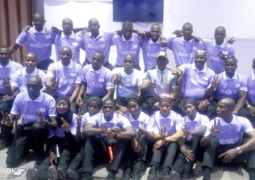Taiwan’s Health Minister Chiu Wen-ta expounded on his country’s achievements in the field of medicine and health, at the World Health Assembly (WHA) in Geneva, Switzerland, on Wednesday, CNA have reported.
Chiu said that over the past 50 years, Taiwan has eradicated or brought under control more than 10 infectious diseases. Notably, Taiwan launched the world’s first universal mass hepatitis B vaccination program in 1984, which resulted in a significant reduction in the chronic carrier rate among children, from 10 percent to below 1 percent, over 15 years, the health minister said in his speech at the 66th WHA.
The program also appears to have slashed the incidence of childhood liver cancer by as much as 75 percent, he said. In addition, the five-year survival rate of all liver transplant patients in Taiwan is about 76 percent, among the highest in the world, Chiu added. Since Taiwan adopted its National Health Insurance (NHI) scheme in 1995, 99.8 percent of the population has been covered by the NHI system, he said. The country’s overall medical spending amounts to roughly NT$500 billion (US$16.7 billion), or just 6.6 percent of gross domestic product (GDP) in 2010, Chiu said. Meanwhile, the life expectancy of Taiwan residents averages 80 years, and the infant mortality rate is 4 deaths/1,000 live births, the health minister said. Taiwan has set a global target of a 25 percent reduction in premature mortality from non-communicable diseases by 2025, he said. It also aims to lower the death rate from cancer in the country by 20 percent and the smoking rate by 50 percent, while doubling the exercise rate by 2020, according to the minister.
He noted that Taiwan confirmed its first imported case of human H7N9 avian influenza earlier this year and has reported the case to the World Health Organization. The patient is recovering well, he added. Although there are some constraints on Taiwan’s participation in WHO activities, it will continue its support for the WHO’s and global efforts against influenza pandemics, Chiu said. The minister called on members of the WHO to allow Taiwan to participate meaningfully in WHO meetings.
He also thanked Taiwan’s diplomatic allies for speaking out in support of Taiwan’s participation in more WHO activities.
Read Other Articles In Article (Archive)
Kombo South District tourney to resume soon
Jul 20, 2015, 9:44 AM


